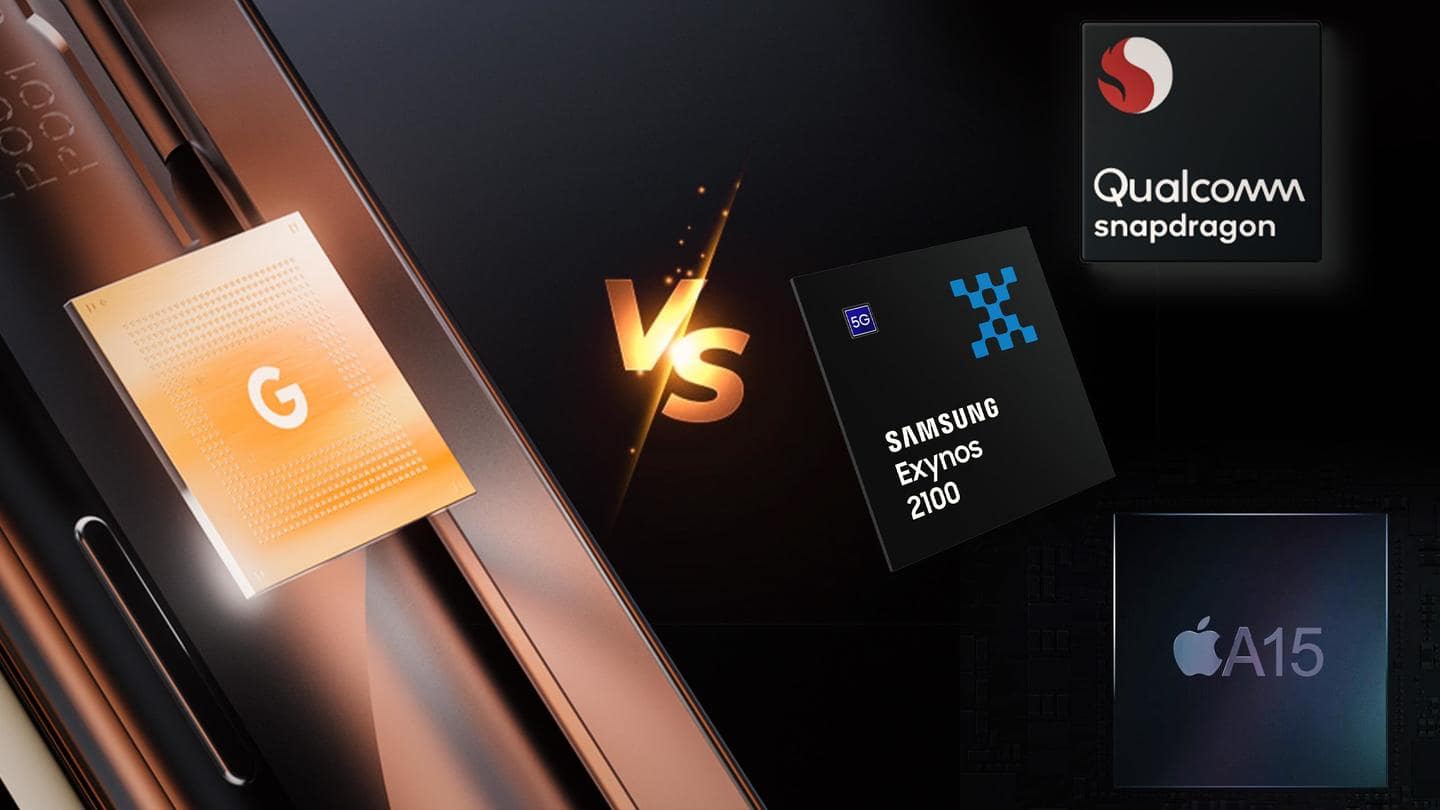
How Google's Tensor SoC compares with other flagship mobile processors
What's the story
Following in the footsteps of Apple, Google has transitioned from relying on a third-party processor to using a custom-made silicon, called Tensor, for its latest Pixel 6 and Pixel 6 Pro flagship smartphones.
The in-house chipset is garnering good results on the GPU and Geekbench platforms. But how does it compare against other flagship mobile processors?
Here's a deep dive.
Finer details
Tensor chipset packs a 20-core GPU
Google's Tensor is a 5nm octa-core chipset with two Cortex-X1 cores clocked at 2.8GHz, two Cortex-A76 cores speeding at 2.25GHz, and four Cortex-A55 cores rated at 1.8GHz.
It also has a 20-core ARM Mali-G78 GPU, a Titan M2 security chip, a dedicated TPU for faster machine learning-related processing, an ultra-low power context engine, and an advanced image signal processor.
GPU results
It has beaten rival SoCs in GPU performance
In 3DMark GPU benchmark charts, the Tensor chipset has outperformed rival SoCs. With Google Pixel 6, it scored 2,028 at 12.8fps in the Wild Life Extreme test.
The Snapdragon 888-powered Samsung Galaxy S21 Ultra scored 1,494 at 8.90fps, whereas the Exynos 2100-powered model achieved 1,793 points at 10.70fps.
The Kirin 9000-fueled Huawei Mate 40 Pro scored 2,004 at 12.0fps.
CPU performance
Single-core performance is at par with leading SoCs
In one of the recent Geekbench tests performed on the Pixel 6 Pro, the Tensor achieved a single-core score of 1,039 and a multi-core score of 2,926.
In comparison, the Exynos 2100-powered Galaxy S21 Ultra scored 1,075 and 3,388 points in single-core and multi-core tests, respectively.
The Snapdragon 888-powered Mi 11 Ultra achieved a single-core score of 1,001 and a multi-core score of 3,209.
No competition
Google's Tensor trails Apple's 3-year-old A12 Bionic processor
Although the Tensor chipset has performed well against Qualcomm, Samsung, and Huawei's processors, it has a long way to cover to even come close to Apple's A-series Bionic silicon.
Recently, a Twitter user @9lekt compared the Geekbench results of Tensor with 2018's A12 Bionic processor.
Surprisingly, Apple's three-year-old A12 Bionic chipset achieved better single-core and multi-core scores than the all-new Tensor.
Information
Apple's latest A15 Bionic SoC is leaps ahead of rivals
The recently-announced iPhone 13 series is powered by Apple's all-new A15 Bionic chipset. On Geekbench, it has achieved a single-core score of 1,732 and a multi-core score of 4,685, blowing the competition out of the water by a convincing margin.